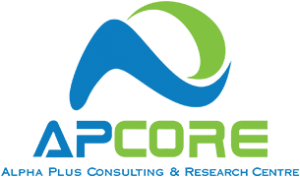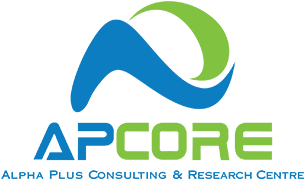Corporate Training & Development - A Game Changer
Human Resources -
Key Concern Areas in Banks?
Training and development are major concern areas in the banking industry. The need for training and development arises from perpetual and rapid expansion of network of offices leading to increase in employee count; introduction of new policies, products & processes; lateral and upward movement of resources from one task to another or higher positions, etc. This need gets further accentuated by ever increasing competition in the industry, and frequent changes in regulatory requirements leading to changes in policies and processes, in turn necessitating communication of changes and fine-tuning of skill sets.

Distinction Between 'Training' & 'Development'
Training implies a process of upgrading an employee’s knowledge, skills and competencies. Typically, training is a short-term reactive process for a few days, for operative and process excellence, involving a systematic setup focused on enhancing the knowledge and skills of employees, while providing information and instruction for better performing of specific tasks, increasing efficiency and productivity.
Development implies an increase in overall knowledge, maturity and holistic growth of employees. The process of development is in relation to insights, attitudes, adaptability, leadership, human relations and total personality. Development is a pro active continuous process which extends beyond short time classroom or online sessions. In fact, development process requires individualized handholding for quite some time.
Distinction Between 'Training' & 'Learning'
Training, as explained above, is typically imparted through pre-set lectures, practical examples, on the job training, or by providing pre-set structured communication containing relevant knowledge. It is neither customized to individual trainee’s needs nor involves pre-testing the knowledge/skill-levels of individual trainees in a group for 20-30. Post-training assessment may at times, include some tests and scores being declared, but no follow-up programs for individuals lagging behind. Also, the trainer doesn’t know exactly how much knowledge/skillsets gets retained and utilized by each trainee.
Learning on the other hand, involves a process of pre-assessment of knowledge/skillset deficit, grasping requisite knowledge and skills at one's own pace, through the process of self-learning or attending onsite/online lectures, group discussion, quiz programs, ‘on-the-job labs’, or one-o-one sessions with a mentor, etc., and self-testing at each stage. It is a process which triggers a 'never ending' hunger for knowledge and expertise; and instinctive craving for one upmanship; an eagerness to be ahead of the curve; an inner urge to become a 'Go To Person' or become 'Mr./Ms. Dependable'.
Training & Development facilities in Banks
Inhouse Training Centres
Most banks have their inhouse training centres, colleges, etc. Some of the banks even have roving faculty moving from office to office for systematic and cost-effective training. But, the inhouse facilities invariably fall short of massive requirements, considering the ever-growing training needs in banks.
Limitations
The problems of inhouse training facilities, get further accentuated on account of limitations on training capacity expansion, the training faculty finding it difficult to keep pace with frequent changes in policies and processes and introduction of new products, rapid outdating of the training methodologies, frequent upward and lateral movement of training faculty for better opportunities, and lack of exposure to industry best practices.
Train the Trainers
In fact, there is always growing increase to train the trainers so that they become better and sharpened catalysts for change.
No holistic growth with sporadic training sessions
In addition to the above, the most important aspect of training i.e. "development", rarely becomes feasible with inhouse training facilities or even most outsourced facilities. Sporadic training sessions over few hours or days, cannot be expected to enhance the vast knowledge, bring about change in attitudes, increase adaptability, develop leadership skills and improve maturity, leading to holistic growth of employees.
Development requires deep understanding of each individual, his/her current level of knowledge, aptitude, and skill-sets; thereafter, designing a training program to cater to his/her specific needs, and handholding for quite some time till he/she gets into self-acceleration mode.
Development requires deep understanding of each individual, his/her current level of knowledge, aptitude, and skill-sets; thereafter, designing a training program to cater to his/her specific needs, and handholding for quite some time till he/she gets into self-acceleration mode.
How does APCORE facilitate Learning & Development?
At APCORE, we believe in 'Learning' and not 'Training'
We start with a distinction between Training, Learning and Development and focus on Learning and Development, while adopting training as one of the many routes and methodologies for acquiring and enhancing knowledge and skill sets, that would facilitate improved operating efficiency, productivity, reasoned decision making, change in the insights, attitudes, adaptability, leadership, and overall development. We try to inculcate the concept of ‘sharing knowledge’ and being a catalyst to organisation-wide training initiatives.
APCORE steps in a bank to bridge the huge knowledge and skill set gap and facilitate high impact training and development, with major focus on learning and development rather than imparting training.
Learning is the objective and not imparting training. Even in short duration training programs emphasis is on learning followed by a series of tests and complimentary handholding of each trainee till the development takes place.
To understand our methodology of training & development which is based on deep understanding of industry best practices, in-depth expertise in every sphere of banking, and latest tools & methods globally used for training, please ‘Consult Us’ or visit our ‘Online Learning Institute’
Know more about our Competencies
APCORE
OPPORTUNITIES
Apply Now
Apply Now
Please complete the details below and then click on Submit and we’ll be in contact.





